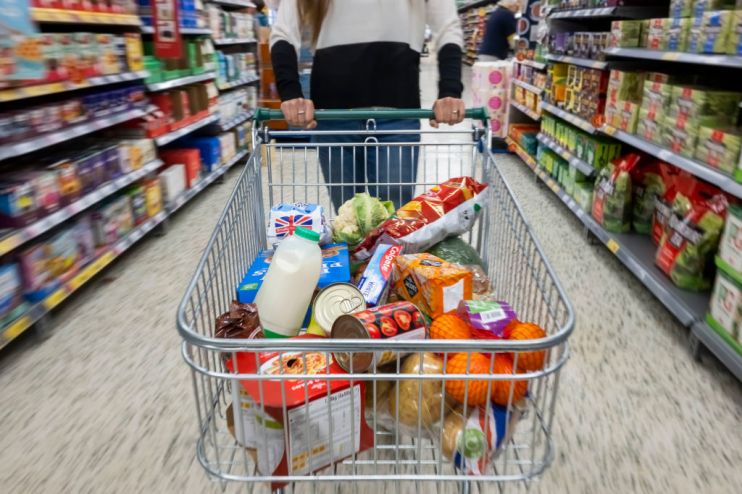UK inflation tipped to trim to lowest level in over a year as food prices begin to ease

UK inflation is poised to recede to its lowest level in over a year, pushed lower by food and energy price rises easing, markets are betting.
Fresh cost of living figures from the Office for National Statistics (ONS) on Wednesday will top investors’ minds in a busy week of data that will shape movements in financial markets.
Investors think the rate of price increases fell to 8.3 per cent in May, down from 8.7 per cent in April, taking it to its weakest level since March 2022 when it was running at seven per cent.
Inflation has persistently topped the City and Bank of England’s expectations in recent months, mainly due to quicker than projected increases in food prices, which have jumped 19 per cent over the year to April.
“We think food price inflation should ease slightly as the lagged effect of global commodity prices retreating starts to feed through, while declining energy prices should slowly lower the cost pressures facing supermarkets,” analysts at Oxford Economics said.
Analysts will be closely watching how much core inflation – which strips out volatile food and energy prices – fell over the last month for signs on how much the Bank will raise interest rates on Thursday and for whether underlying price pressures are still withstanding prior increases in borrowing costs.
Bank economists are tipped to hoist rates 25 basis points on Thursday to 4.75 per cent, although some corners of the City think they could opt for 50 basis point rise.
The “0.3 percentage points of the rise in core inflation in April was due to a leap in communications inflation from 3.7 per cent to 7.9 per cent. As that was mostly due to the annual rise in the price of mobile phone contracts, it won’t have been repeated in May,” experts at Capital Economics said.
Inflation staying higher than expected by Britain’s spending watchdog the Office for Budget Responsibility is poised to put government borrowing on course to top its forecasts made alongside the March budget.
“Debt servicing costs are likely to be stronger heading further into Q2 as inflation remains far stickier than the OBR expected,” Sanjay Raja, senior economist at Deutsche Bank, said.
A big chunk of the UK’s debt stock is linked to an old measure of inflation, the real price index. High inflation’s persistence has resulted in the government raising payments to investors at a quicker pace than thought, heaping pressure on the public finances.
Markets think ONS figures on Wednesday will show the government took on an additional £20bn of debt in May.
Fresh purchasing managers’ indexes on Friday are expected to confirm the UK economy is still dodging a much feared recession, but that activity is cooling.
The services survey will edge lower to 54.8 in June from 55.2, albeit still much higher than the 50 point threshold that separates growth and contraction.
The manufacturing downturn is set to gather pace, with the sector’s PMI poised to trim from May’s 47.1 reading, which would take the composite number down to 53.9, according to Oxford Economics.
An additional bank holiday in May to celebrate the King’s coronation is likely to have kept retail sales in negative territory, falling 2.6 per cent over the year to May, numbers from the ONS on Friday are tipped to show.
City experts think consumer confidence data from GfK on Friday will improve slightly to minus 25 points in June from minus 25 points in May.